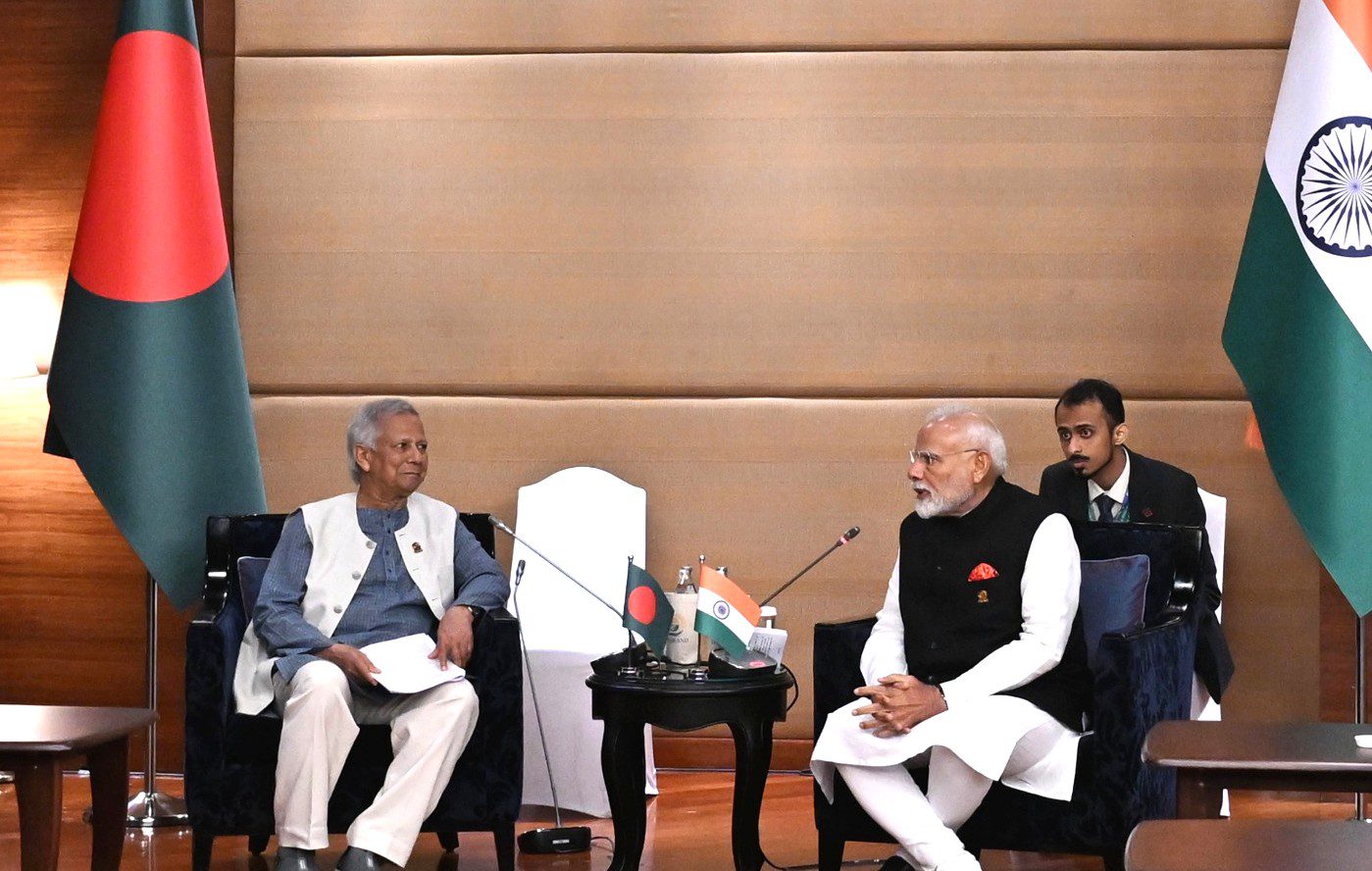By Special Correspondent, Dhaka:
The long-awaited meeting between Bangladesh’s interim Chief Adviser Muhammad Yunus and Indian Prime Minister Narendra Modi, held on the sidelines of the BIMSTEC Summit in Bangkok, comes at a pivotal time in Dhaka-Delhi relations.
Since the ousting of Sheikh Hasina’s government in August last year amid a mass uprising, the traditionally close bond between the two South Asian neighbours has faced growing uncertainty.
Hasina’s subsequent self-imposed exile to India—and her continued political messaging from across the border — has further strained the relationship. Bangladesh’s interim government has repeatedly requested her extradition, citing her “inflammatory” rhetoric as a destabilizing force.
Chief Adviser Yunus’s press secretary, Shafiqul Alam, confirmed that the extradition issue was directly raised during the talks. Dhaka views Hasina’s return as crucial for legal proceedings and internal stability. However, India has so far maintained a guarded silence on the matter—an approach that has frustrated Bangladeshi officials.
The Bangkok meeting followed months of diplomatic tension, which included a suspension of Indian visa services for Bangladeshis, tit-for-tat diplomatic summons, and heated public exchanges.
Since the political transition in Dhaka last August, India has maintained a freeze on issuing visit visas to Bangladeshis—an apparent reflection of political distrust.
India’s growing concern over minority rights in Bangladesh and Yunus’s controversial remarks during a visit to China—where he referred to India’s northeastern states as “landlocked” and portrayed Bangladesh as the region’s “only maritime gateway”—have only added fuel to the fire.
India responded sharply. In his BIMSTEC address, Indian Foreign Minister S Jaishankar countered Yunus’s framing by pointing to India’s 6,500-kilometre coastline and its extensive land and sea links with five BIMSTEC members — an implicit assertion of India’s strategic relevance and regional leadership.
Despite these tensions, the Yunus-Modi meeting could signal an attempt to reduce hostilities. The leaders reportedly discussed longstanding bilateral issues such as border killings, renewal of the Ganges water-sharing agreement, and the unresolved Teesta River dispute—each a key flashpoint in their complex relationship.
For Bangladesh, this meeting was not just symbolic. With pressure mounting over Hasina’s continued political activities from Indian soil and India’s hesitancy to facilitate her return, Dhaka faces the dual challenge of affirming its sovereignty while maintaining crucial ties with a powerful neighbour.
At the same time, Bangladesh appears to be reorienting its regional diplomacy, delicately balancing between India and China amid shifting geopolitical currents in South Asia.
India, meanwhile, has yet to publicly recognize the interim government in Dhaka—suggesting a cautious, wait-and-see posture. Analysts believe New Delhi is weighing its strategic options, unwilling to commit to any political alignment that could jeopardize its long-term regional interests.
While the Bangkok talks were symbolically significant, they left more questions than answers. Can both nations rebuild trust amid rising nationalism and competing regional agenda? Will India clarify its stance on Hasina’s future? And can Dhaka and Delhi move past political personalities to restore a robust, functional bilateral partnership?
If nothing else, the Yunus-Modi meeting underscores the fragility of the current regional equilibrium—and the pressing need for careful, forward-looking diplomacy in the months ahead.


